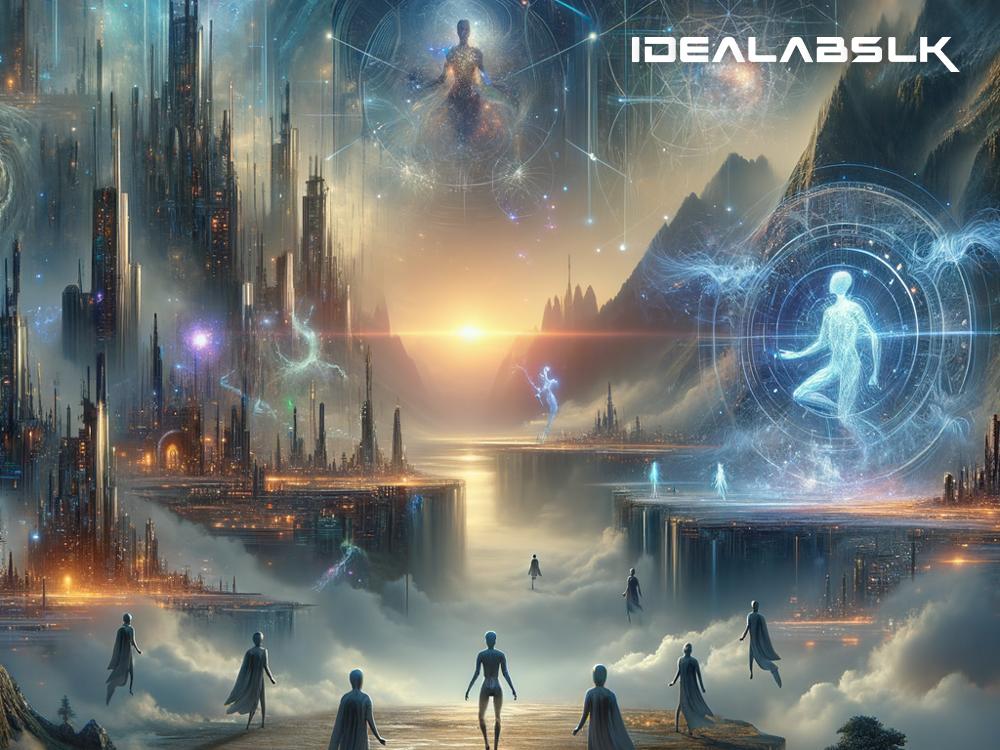The Magic of AI in Shaping the Future of Video Game Stories in 2025
In the vibrant world of video games, stories are the soul that breathes life into characters, worlds, and adventures, making us laugh, cry, and sit on the edge of our seats. Now, imagine a future, specifically the year 2025, where the stories in video games evolve beyond anything we've seen before, thanks to the magic wand of technology: Artificial Intelligence (AI). This new era of gaming is not just about playing a game; it's about living inside an ever-evolving cinematic story. Let's dive into how AI is transforming storytelling in video games into a mesmerizing experience.
Blurring the Lines Between Games and Movies
Remember the times when game cutscenes were just little breaks between gameplay? Those days are becoming a relic of the past. In 2025, AI is blurring the lines between video games and cinematic movies, crafting immersive experiences where gameplay and storytelling are seamlessly interwoven. Every decision you make and action you take directly influences the storyline, leading to a personalized cinematic journey. This evolution means that games are no longer just stories being told to you; you're actively shaping them as you play.
The Rise of Dynamic Storytelling
One of the most groundbreaking impacts of AI in video game storytelling is dynamic storytelling. Traditional games often follow a linear path, with the story unfolding the same way for every player. But with AI, games in 2025 are capable of creating dynamic, evolving stories that adapt based on your choices, resulting in a unique narrative for every player. This means that the story might take a completely different turn based on how you decide to interact with a character or tackle a problem. The game "remembers" your choices and tailors the narrative accordingly, making every playthrough a new adventure.
Characters That Feel Alive
Beyond dynamic stories, AI is revolutionizing how we interact with characters in video games. In 2025, game characters are no longer static, scripted entities. They're powered by advanced AI, making them capable of having fluid, natural conversations with players. These characters can express a wide range of emotions, respond to your actions in real-time, and even develop relationships with you throughout the game. It's like having a friend inside the game who reacts authentically to everything you do, making the world feel incredibly real and alive.
Creating Endless Possibilities
The traditional video game development process involves scriptwriters outlining every possible outcome and conversation, which is both time-consuming and limits the game's scope. However, AI in 2025 is a game-changer, quite literally. It can generate content on the fly, creating endless possibilities for stories, characters, and worlds. This means more diverse narratives, unexpected plot twists, and richer game universes that keep expanding as you explore them. The limitation is no longer the developers' imagination but how far the AI can stretch it.
The Democratization of Game Development
One of the most exciting aspects of AI's impact on video game storytelling is how it's democratizing game development. In 2025, you don't need to be part of a big studio to create a game with a captivating, dynamic story. Independent developers can use AI tools to craft complex narratives and detailed worlds, leveling the playing field and leading to a surge in creative, innovative games from all corners of the globe. This democratization means more voices, more stories, and more diverse experiences for players.
Ethical Considerations and the Path Forward
With all these advancements, it's crucial to discuss the ethical considerations of using AI in video games. As AI creates more realistic and emotionally engaging experiences, developers need to be mindful of the impact their stories can have on players. It's a powerful tool that, when used responsibly, can create deeply meaningful experiences but also has the potential for misuse.
In conclusion, the year 2025 heralds a new dawn for cinematic storytelling in video games, with AI at the helm shaping immersive, evolving narratives that were once the realm of science fiction. This fusion of technology and creativity is not just transforming how stories are told in games; it's redefining our very experience of them. As we look to the future, one thing is clear: the stories we'll play tomorrow will be limited only by our imagination, with AI as the key to unlocking worlds we've yet to dream of.

